China: A New Empire Emerging
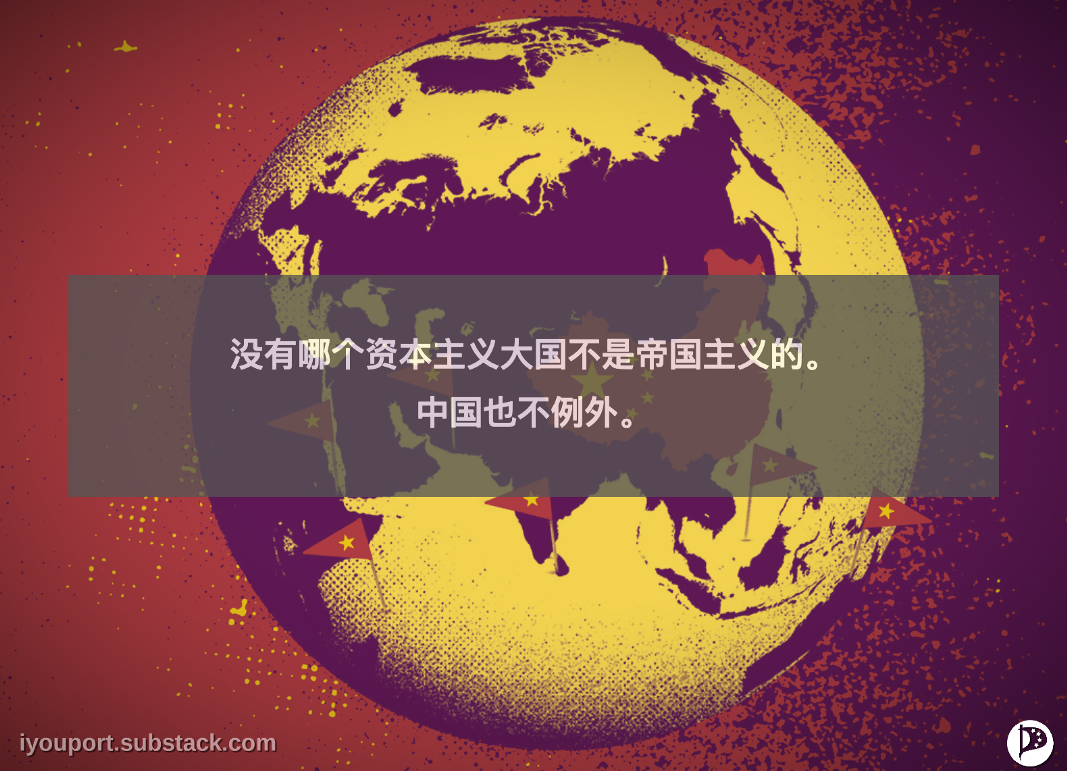
It has been known that imperialism can be born outside the Western realm. This is the case in Japan. However, this is only part of a fairly classic analytical framework. The establishment of Western empires in Northeast Asia was not yet complete, and the major powers were vying for control over China, and the Japanese regime responded preventively. As for the social structure of the country, which in our opinion is basically similar to that of European countries, the Meiji Restoration (1868) ensured the transition from late feudalism to modern capitalism: accelerated industrialization, the formation of a strong army, subtly demonstrated has gained its own advantage over Russia: for the first time, a European power was defeated by an Asian country, a major event that caused a geopolitical earthquake . Thus, Japan was the last imperialist state capable of forming in the early 20th century.
The transformation of the vast Russian Empire to modern imperialism did fail, especially due to the consequences of its defeat by Japan during the Russo-Japanese War (1904–1905): its military capabilities collapsed, its naval fleet in two phases Destroyed: first the fleet stationed in Siberia, then the fleet stationed in the Baltic. At the domestic political level, this defeat was countered by the revolution of 1905, which triggered a crisis in the tsarist regime. Defeated by the new Japanese imperialism in the east, and then by Germany during World War I in the west, when Russia was on the verge of becoming a dependency or a divided state - which, thanks to the 1917 revolution, was freed from this a destiny.
With the formation of colonial empires, the initial division of the world is almost complete; henceforth, the stakes of conflict between imperialists will be a modification of this division.
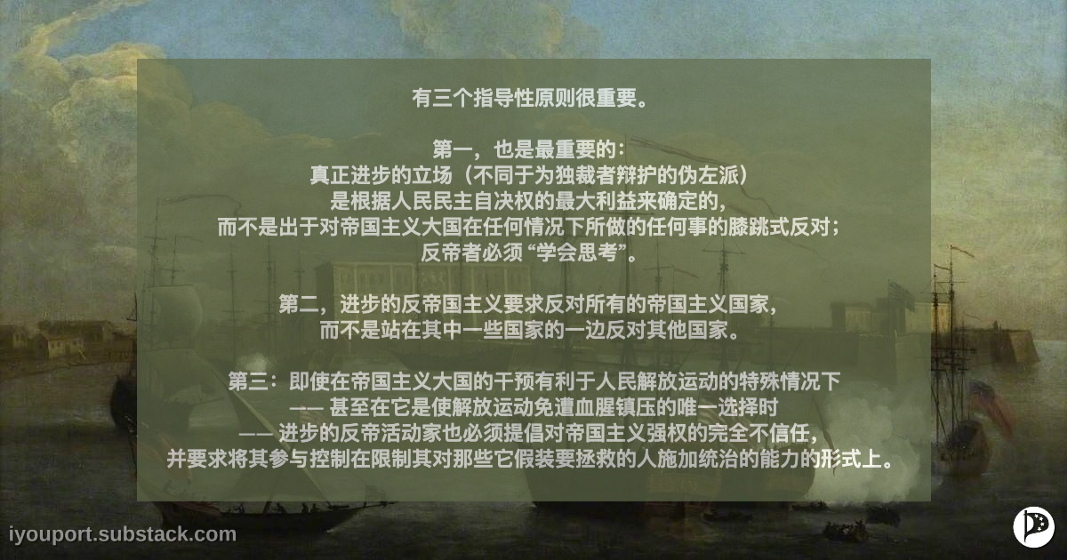
At the heart of capitalist globalization and geopolitical tensions
In the early 2000s, Xi Jinping's China established itself as the world's "second-largest country," at the heart of capitalist globalization. It has its own projects on every continent and every ocean. In Xi Jinping's view, "in the era of economic globalization, opening up and integration is an irresistible historical trend. Building walls or 'decoupling' goes against economic laws and market principles."
Philip S. Golub noted, “The party-state has asserted its role as an advocate for free trade and global finance . Groups issue licenses to allow them to operate wholly-owned or controlled subsidiaries in specialized markets. The Economist on September 5, 2020 argues that “China is creating opportunities [that foreign capital didn’t think of, at least thinks] Not so fast]”. The scale of U.S. capital inflows to China is difficult to estimate because “many Chinese companies that issue shares have subsidiaries in offshore tax havens.” According to a report published by Investment Watch on July 13, 2021 China has more subsidiaries in the Cayman Islands than most other countries, only behind "the United States, the United Kingdom and Taiwan," the report said.
"The Chinese government's ability to call the shots in key industrial sectors, backing a vast sponsorship network in Chinese ways, is reinforced by the party's ability to conduct extensive surveillance on society. We are dealing *not* with 'Chinese characteristics' market socialism', but state capitalism effectively endowed with 'Chinese characteristics'".
From India to South Korea , state-led economic development is not new in Asia. In various forms, many dominant oligarchies combine private, military, and state capital. The connection between them is often achieved through large family owners.
Inheriting a long and particularly complex history, China's social structure is very heterogeneous. As the workshop of the world, its economy is still partly dependent on foreign capital and imported components. However, it also provides the basis for independent international development. In some sectors, it can produce advanced technology, and in others, it can't catch up with the trend - such as advanced semiconductor field. It is going through a capitalist-type crisis of overproduction (and debt) that has hit real estate hard, symbolized by the bankruptcy of property giant Evergrande. So far, all predictions of a housing bubble bursting have been dismissed by China — but that doesn't mean that will always be the case. As Romaric Godin pointed out, "The public has not yet spoken out about the possible crisis in China, but the contradictions of the state capitalism of this people's republic are undoubtedly deepening day by day".
Beginning in the 1980s, the Chinese leadership prepared for international expansion. Deng Xiaoping was cautious, and Xi Jinping was aggressive. This expansion has domestic economic drivers (finding out ways for industries with low profit margins and overproduction, such as steel, cement, or labor). It appeals to deep cultural origins - restoring the centrality of the Central Plains dynasty, eradicating the humiliation of colonial rule, and offering a global alternative to the Western model of civilization. It fosters a great-power nationalism, legitimizes the regime, and has ambitions to challenge American hegemony.
Thus, a "classic" situation emerged: an existing great power (the United States) faced the emergence of a growing great power (China).
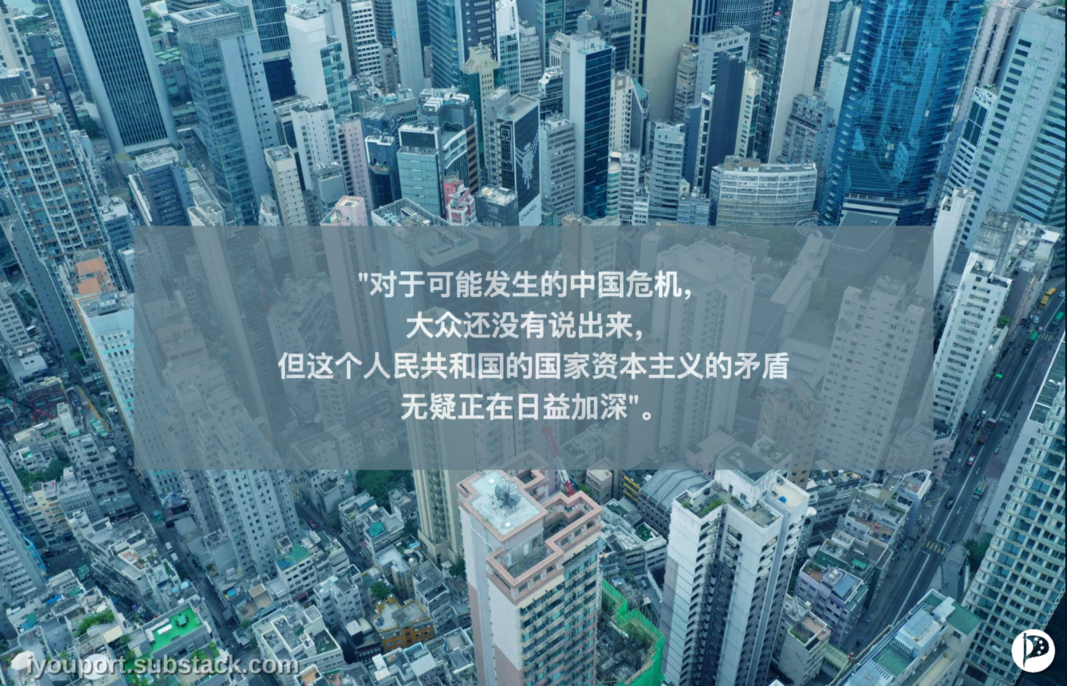
International prerequisites
How can what had become impossible at the beginning of the twentieth century (the emergence of new imperialism) be achieved at the turn of the twenty-first century? At the risk of oversimplifying, let's highlight two time periods.
After the Russian (1917) and Chinese (1949) revolutions, much of Eurasia was freed from the direct rule of Japanese-Western imperialism and gained an independent status without which everything that followed was impossible occur.
After the international defeat of the revolutionary movement in the 1980s and the disintegration of the Soviet Union, the dominant faction of the international bourgeoisie made the mistake of triumphalism, believing that their indivisible rule would be guaranteed from now on. It does not seem to consider that the neoliberal world order it imposes will be exploited by Beijing to its own advantage and achieve the "success" that is now seen.
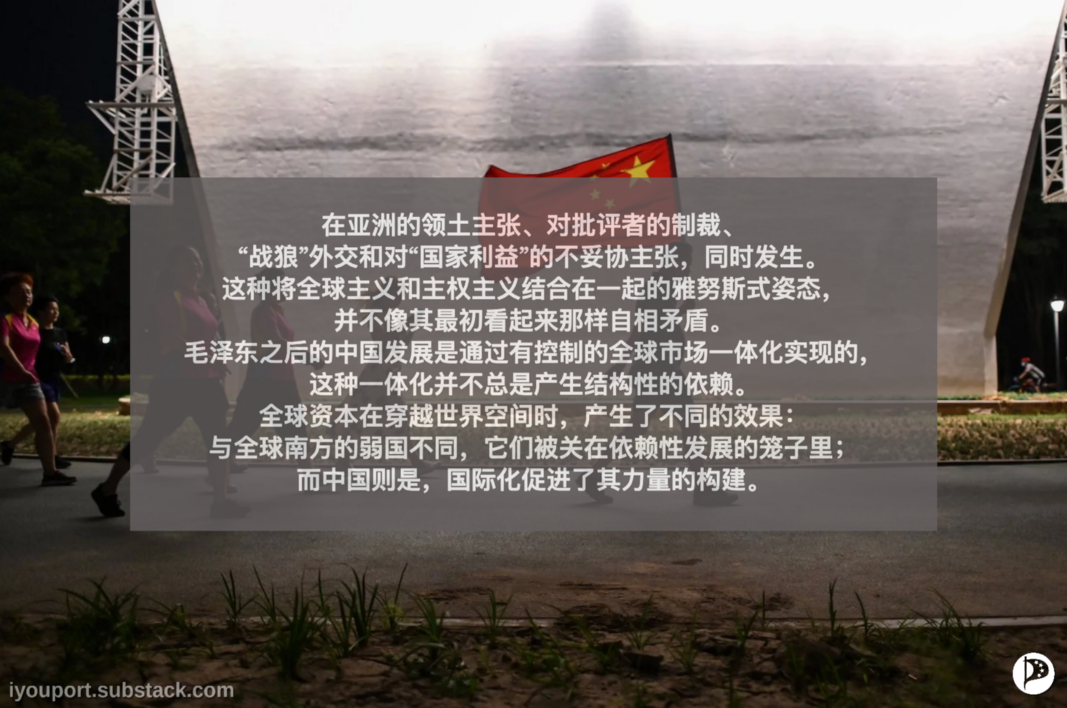
China's transformation
An analysis that claims that current China's international policy is "not imperialism" is based on a continuum of regimes from 1949 to the present, but this continuum is only in name: the People's Republic (PRC), the Communist Party (CCP), the important national economy department. There is of course continuity, especially cultural continuity, including the empire's long bureaucratic tradition, that embellishes a historic "normality" for contemporary regimes. However, discontinuity prevails -- and far more than that. There are revolutions and counter-revolutions, as evidenced by the continuous upheaval of social classes.
1. The position of the industrial proletariat.
After the proclamation of the People's Republic, the CCP had to rebuild its social foundations in urban centers. In order to do this, it is attached to the working class in two senses: to subordinate it and to provide it with substantial social benefits.
Politically, the working class is placed under the control of the party; it does not "lead" the business or the state. Workers were assigned to work units, like regional civil servants in the French tradition; however, the working class of the new SOEs enjoyed considerable social advantages (lifetime employment, etc.). Of course, apart from the bureaucratic stratum of state power, no other social stratum has such a favorable social position.
2. The status of women belonging to the popular class.
Two symbolic laws passed after the seizure of power benefited ordinary women: equal rights in marriage and land reform to include them.
3. The old ruling class.
Once the People's Republic was consolidated, the old ruling classes (urban bourgeoisie and rural aristocracy) would disintegrate, regardless of the personal fate of this or that member of the Chinese elite.
The Mao Zedong regime consolidated itself after a social, nationalist, anti-imperialist and anti-capitalist revolution, a process of permanent revolution. It has a deep mass base, but is very authoritarian, especially, it has been affected by decades of war. The democratic legacy of social mobilization characteristic of the "people's war" strategy remains, but the party-state still constitutes the framework for bureaucratization (a procedure). This is definitely not "socialism", but a transitional society, the outcome of which is uncertain.
4. The crisis of Mao Zedong's regime.
All the internal contradictions of Mao Zedong's regime erupted in the misnamed " Cultural Revolution " (1966–1969). This is a very complex global crisis in which both the government and the party are overwhelmed - only the military can intervene uniformly across the country. Mao Zedong eventually called for a forced restoration of order, turning against the Red Guards and workers' groups that supported him. In the 1970s, this paved the way for the obscurantist autocracy of the "Gang of Four", the ultimate victory of the bureaucratic counter-revolution. The disastrous outcome of the so-called "Great Proletarian Cultural Revolution" (GPCR) determined the ultimate crisis of Mao Zedong's regime and Mao Zedong's political death, ten years before his physical death.
The bureaucratic counter-revolution created fertile ground for the bourgeois counter-revolution, and with the return of Deng Xiaoping (survivor of the Cultural Revolution) to power, disrupting popular mobilization, it seemed at the time that there was a return to rationality. And a few years later, it was discovered that the slander that justified the Great Purge in the 1960s had become a reality in the 1980s—Deng Xiaoping embodies the capitalist options in the new leadership of the Chinese Communist Party .
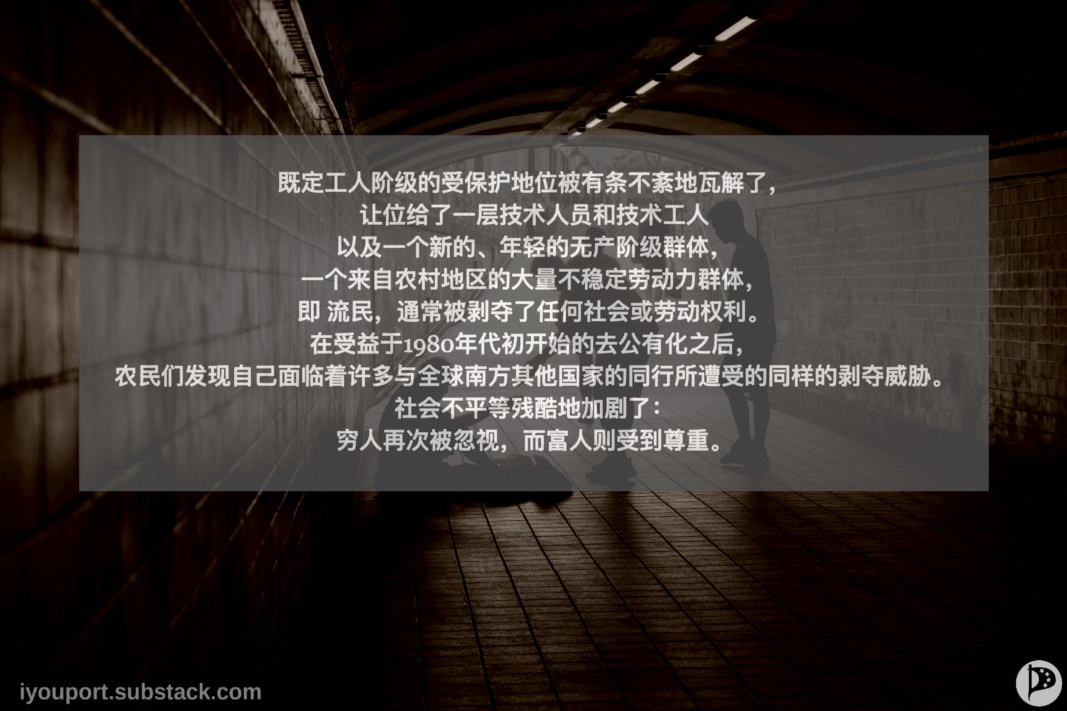
5. The counter-revolution of the 1980s.
Driven by Deng Xiaoping, the core of the bureaucracy prepared for its transformation, "bourgeoisization" and the reintegration of the state into the capitalist world market. In the process, it benefits from some special advantages.
a/ On the legacy of Mao Zedong's regime: an independent "state" , industry and technology, an educated and qualified population …
b/ On the legacy of colonial times: Hong Kong (British colony), Macau (Portuguese colony) and Taiwan (US protectorate) are open doors to world markets and international finance, provide management knowledge that does not exist in mainland China, allow technology Transfer (Macau is an ideal channel to circumvent laws and regulations).
c/ Possibility to cooperate with powerful Chinese multinational capital on a solid basis of compromise: the latter is given privileged treatment in China, while declaring that "only the government and the Chinese Communist Party can guarantee the maintenance of state-continental unity".
d/ China's intrinsic weight (its geography and population size) - a country like Vietnam can follow the same evolution as its neighbors, but is unlikely to aspire to great power status.
China's accelerated transformation of capitalism was accomplished with the historic failure of the popular class in the massive crackdown known as Tiananmen Square in April 1989 (which affected the entire country, not just Beijing). Since then, social classes have been rearranged .
6. The proletariat.
The working class of SOEs stubbornly resists the labor demands demanded by the authorities, so, as a last resort, the government decides to largely withdraw them from production while continuing to pay their wages under various pretense. The exodus of the rural population made it possible to form a " new proletariat ", especially in free trade zones. 70% of women, who at the time were workers without a hukou (in China, it is forbidden to change residence without official approval). Migrants are the perfect labor force for the hyper-exploitation that characterizes the period of primitive accumulation of capital. The first generation of immigrant women from the interior suffered as they waited to return to the countryside; the second generation of refugees, with the support of many associations, began to fight for their regularization.
7. Reversal of social and ideological order.
The intellectual elites who were still at the bottom of society yesterday were raised again. Women from the mass stratum were ignored. Deng Xiaoping advocated the virtue of "trickle down" ("let some people get rich first"). National economic sectors now operate in symbiosis with private capital. China has a record number of billionaires who have found their place in the governing body of the Chinese Communist Party.
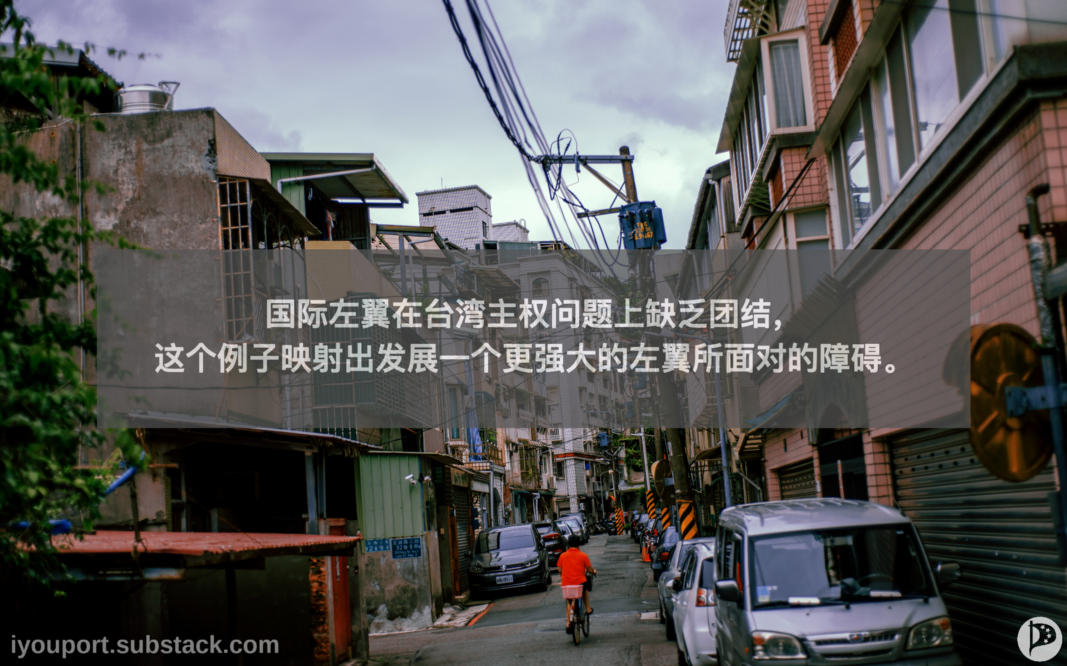
Great Powers, Imperialism and Interdependence
There is no major capitalist country that is not imperialist. China is no exception. To give a few examples.
1. Suppression of its "surrounding areas".
Thanks to the development of high-speed transportation networks, Tibet has become an object of colonization by settlers. In East Turkestan ( Xinjiang ), the predominantly Muslim Uighur population has been affected by a range of measures ranging from forced assimilation to mass internment, targeting at least cultural genocide.
The treaty that promised respect for the democratic rights of the Hong Kong people at the time of the colony's handover ("one country, two systems") has been unilaterally rejected by Xi Jinping. After years of popular resistance, Beijing imposed a crackdown that criminalized independent organizations ( forced to disband ) and imposed heavy sentences on any dissent.
The right to self-determination, the freedom of self-determination of the people, was no longer an issue in the advance of the empire.
2. In order to protect its investments in the "New Silk Road" era and secure access to the Indian Ocean ("Corridor"), Beijing does not hesitate to support the worst dictatorships (such as Burma ) and interfere in the internal affairs of another country (such as Pakistan ).
3. The temporary paralysis of the U.S. (in the Middle East ) allows Xi to militarize the entire South China Sea, taking control of maritime territories from the Philippines to Vietnam and other littoral countries. Beijing condemns America's great-power policy in the region, but has not hesitated to use its navy's overwhelming superiority against its neighbors.
4. To secure its sea lanes (commercial or military), Beijing has seized ports in many countries from Sri Lanka to Greece, using debt weapons when necessary. A default on the debt could allow Beijing to demand a port concession for up to 99 years (that's Hong Kong's colonial status!).
5. By desperately projecting itself internationally, China is now participating in the demarcation of the South Pacific sphere of influence by demanding significant maritime space.
The United States was and is a major imperialist state and the number one source of global militarization, war, and instability. This is important and need not be emphasized, except to point out that Joe Biden has successfully refocused U.S. strategy on the main Indo-Pacific theater. Obama once wanted to do this, but was unable to do so because he was involved in the Middle East issue. There is continuity between Donald Trump's policies and Joe Biden's. Still, the latter policy appears to be more coherent than Trump's.
Faced with threats from the United States, the Mao regime once developed a defense strategy whose pivots were the military, popular mobilization, and the territorial dimension of the country: where invaders would lose their way. On the other hand, a "great power" must assert itself in the oceans (and today in space and artificial intelligence). That's why naval aviation is the primary military fulcrum of Xi Jinping's policy of mobilizing the country's resources for rapid development in other areas.
In doing so, the current Chinese regime is participating in the dynamics of militarization of the world (and thus in the worsening of the climate crisis). Some Western pseudo-leftists say that China has the "right" to claim its place under the sun, but since when do we need to defend the "right" of a regime, not the rights of the people?
Tensions between Washington and Beijing over Taiwan have now peaked. There are two opposing logics here. One is the intense and persistent competition between countries, and the other is capitalist globalization, in which interdependence of technology, production chains - "value chains" - trade or finance dominates. Competition takes place in various fields, and "camps" emerge in globalized markets and finance. Whatever the contradictions facing globalization today, the economic "deglobalization" of capitalism appears to be a bet. This interdependence allows one to argue that a war is not in the interests of the Chinese or American bourgeoisie; however, the tension is so high that we cannot rule out a landslide with explosive consequences. With both Biden and Xi facing a fragile domestic situation, the international situation will only be more unstable.
Where will China go? You need to think for yourself. Now China is Xi Jinping's clique, which has forcibly changed the political system. Yesterday, a collegial leadership was at least likely ready for generations; today, Xi Jinping's faction is in power alone. After bloody purges and constitutional changes, he can claim to be "leader for life" .
In China, the selection of political personnel has also become increasingly irrational in view of the collective interests of the ruling class. ⭕️
Further reading:
- Philip S. Golub, Le Monde Diplomatique , November 2021 “Wall Street's unlikely new romance with China” .
- Pierre Rousset “ The Chinese Experience and the Theory of Permanent Revolution ”.
- Pierre Rousset “XXth Century Chinese revolutions — II — China, Maoism and popular power, 1949–1969”
- Daniel Tanuro “ A look back at the history of East Turkestan and the geopolitics of Central Asia ”.
- The Guardian , 25 September 2016 “Barack Obama's 'Asian pivot' failed. China is in the ascendancy”
- Dan la Botz New Politics , 13 October 2021 “Biden Focuses US Foreign Policy on Challenging China”
- Brian Hide, Spectre , 4 November 2021 "Caught Between the Two Superpowers"
- Au Loong Yu, Pierre Rousset, ESSF, 22 October 2017 “The 19th Congress of the Chinese Communist Party — Modernisation by a pre-modern bureaucracy?”
- china-a-new-imperialism-emerges
Like my work? Don't forget to support and clap, let me know that you are with me on the road of creation. Keep this enthusiasm together!

- Author
- More